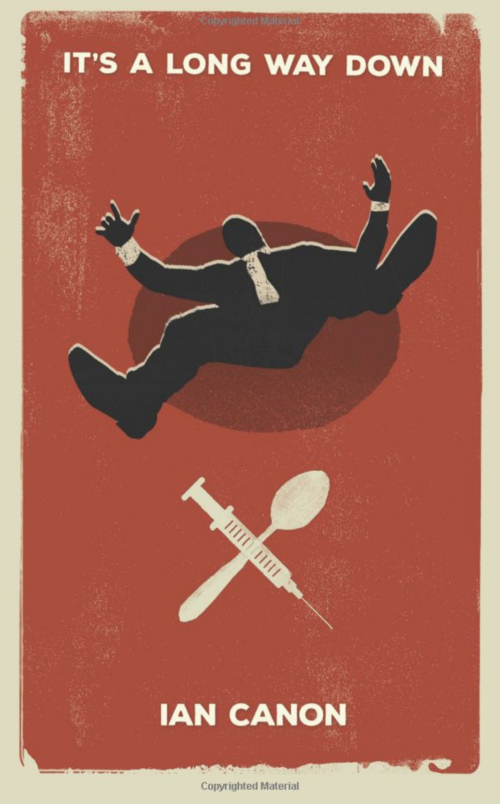How To Set Up Your Amazon Ads To Start Getting Sales On Your First Novel Today
You’ve just self-published your first novel on Amazon’s Kindle Direct Publishing (KDP) and you couldn’t be more excited. All that hard work has finally paid off and you’re an author now! Now it’s time to sit back and watch the sales roll in…
But where are they? You set up a few Amazon ads with obvious keywords like “best fiction 2019” “Best book of all time” “Novels you need to read.”
Because, well, those all fit your book!
So why aren’t the sales rolling in? Why aren’t you booking your trip to the Oprah Winfrey Show to become the next big author, selling your film rights to a big studio, and rolling in cash?
Well, before we start, do you have any reviews? If not, how is anyone going to know it’s a book worth buying? If you don’t have any reviews, look out for my next blog, which I’ll explain a tried and tested way to get authentic book reviews on your Amazon page.
If you do have reviews, but you still aren’t getting sales, this is the blog for you.
Now, there’s a lot to cover, so I’m not going to cover the obvious:
Your book page description and synopsis should be fantastic.
Your novel cover should be eye-catching.
Your ad copy should be A/B tested over and over.
With those out of the way, how do you set up an Amazon Advertising account?
Here’s a screenshot from my Amazon Ads page of my book sales over time.
Before November, I barely got any clicks, spent any money, but I got a LOT of impressions because I was doing generic bullshit keywords like “best fiction.”
But then I started doing some research into how to set up campaigns and here is what I came up with (so far—one thing you must always be doing is optimizing everything). A year from now my campaign may look nothing like this.
How to set up your amazon advertising campaigns - a 5 prong approach
I split my campaigns into five different categories (though, as you dive deeper, you’ll want to split them up even further, with ad copy that speaks to the specific campaign).
But, as a starting point, this is the five categories you want to have:
1) Category Campaign - Amazon Ad
Ranking on a category is extremely important to organic sales. When someone buys one thing in a category, you want your book to be the next suggested book to that reader. What you want to do is find a small enough category that you can break into that is also relevant to your industry.
Mine was “drug dependency”
As of writing this (June 23rd, 2019), I’m ranked 15 in that category on Amazon.com. Here is proof, because I know categories fluctuate like mad.
2) Branded Campaign - Why You Bid On Your Own Amazon Keywords
One of the scariest things for an author to hear is “I searched for your novel but couldn’t find it.” What a terrifying concept! These people are on the verge of purchasing your novel and they can’t find it. God forgive they give up before they get a chance to purchase and their desire to read your novel floats off into the void. That simply will not do.
And you don’t want your branded campaign mixed in with other campaigns, because you want to OVERPAY for these keywords, without other keywords taking precious budget away from them. These are your bread and butter of your campaign (at first), especially with other, outside of Amazon activities running. You tell a friend and they go home and search for it. You want that search to show up.
And within this category, don’t be satisfied with just your title and author name. Try every misspelling, typo and related terms. Unlike Adwords, Amazon’s ‘broad’ search isn’t exactly broad and doesn’t often pick up synonyms, misspellings, or typos.
Finally, search your title on amazon and see what else comes up. Put those authors and titles into your negative keywords. You don’t want to be wasting money on people accidentally clicking your title then backing out.
3) Related Amazon Books and Movies
This one’s easy and perhaps the most effective of the bunch. What you want to do is start an excel or google sheet with all the books and films on similar subjects. There’s a few ways to do this, but perhaps the easiest is to go to the top categories on Amazon and find a related category to your book. Now write down each of the top 100 books in that category.
(Note: there’s a lot of hidden categories that can help you find books)
My novel, “It’s A Long Way Down” is about drug addiction, so I went to all the drug and addiction related categories and collected lists of the books there (Allen Carr sure is popular).
Another way to find a list is simply typing into google “Best books about [topic]” or “Best movies about [topic]” and compile a list that way.
Now add these to your spread sheet.
(Sidenote: I always add the book / movie, the author / director, and both combined, so each piece is three search terms).
Once you have your big beautiful list, simply copy paste it into your keywords and your have your third category.
4) Generally Related Amazon Search Terms
Personally, I haven't had a TON of luck with this one, but it’s still netting the odd sale here and there.
What I did was use a keyword search tool like Moz or Google and type in a related keyword like “best addiction novels,”
I then downloaded the list of related keywords it gave me, combed through it and deleted ones that weren’t relevant, then uploaded that this one to its own category.
5) Cheap Automated Amazon Targeting
Now, to be completely honest, this last one is one I’ve just implemented, and I’m looking forward to the results.
Full disclosure: I got the idea from this video called Amazon PPC Auto Campaign TRICK | The One AMZ Advertising Pay Per Click Strategy Everyone Should Run.
I’m excited to see how it does, but at the very least, an automated Amazon-chosen keyword targeting category is great to have for one reason:
IT GIVES YOU GREAT INSIGHT INTO WHAT THE ALGORITHM CURRENTLY THINKS OF YOUR BOOK AND ITS RELATED TERMS!
That data alone is almost invaluable in and of itself, whether or not this category gets sales.
AND, as always, here are some quick tips to leave you with:
Set your daily budgets WAY higher than you’d realistically want to spend. Amazon never gets close to your daily budget. Maybe 3-4% of your max daily budget.
Test. Test. Test. Your Copy.
If you don’t have any reviews yet, free book promotions are great ways to get a few reviews.
Pay attention to your Goodreads account. People often will review your Goodreads page before they do your Amazon page.
That’s it for this blog. Next week, I’m going to be showing you a proven strategy to get legitimate, verified purchase, Amazon reviews!
Cheers.







